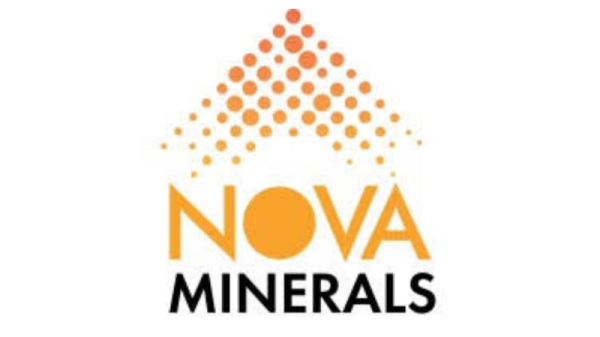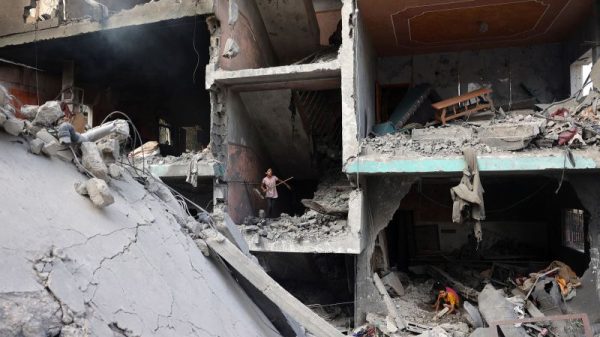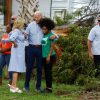Dr. Mohammed Ghneim has not left his hospital in Gaza City in four weeks. He can’t remember the last time he slept or ate, and his blue scrubs are stained in the blood of patients who’ve died in his arms.
His voice cracks under the weight of the horrors he’s seen: fetuses pulled from the wombs of dying mothers, children with crushed lungs struggling to breathe, and his own colleagues – doctors, nurses and EMTs – transported to the hospital morgue in body bags.
Ghneim is an emergency room doctor at Dar Al-Shifa, also known as Al-Shifa Hospital or Shifa, and is Arabic for “house of healing.” But at this hospital – the largest medical complex in Gaza – there’s far too much death.
Shifa is running dangerously low on clean water, medicine, supplies and fuel. Meanwhile, thousands of Palestinians, injured or displaced by Israel’s war against Hamas, continue to pack its wards, seeking shelter from the seemingly endless barrage of airstrikes.
Israeli forces on Saturday surrounded Shifa in all directions, according to Dr. Munir Al-Bursh, director-general of the Hamas-controlled health ministry in Gaza. The Israel Defense Forces denied that the hospital is under siege.
An Israeli airstrike destroyed the hospital’s generator, Al-Bursh said, cutting electricity to the building, including life-saving equipment used by 39 infants in neonatal care. Three infants have already died, he added.
“We are trained to deal with mass casualties, but not like this,” Ghneim, 28, said. “We have no anesthesia to treat patients with severe pain, patients with shrapnel in their head or abdomen, people whose arms or legs have been amputated.”
Alarming scenes from inside Shifa, and other hospitals across Gaza, have sparked international calls for a ceasefire and more aid to be allowed to enter the territory, home to some 2 million Palestinians, currently closed off to the world by Israel and Egypt.
Nonprofit medical groups across the United States are mobilizing to raise funds and ship medicine and supplies to failing hospitals before it’s too late. But with the situation in Gaza spiraling and few diplomatic or humanitarian solutions in sight, many worry the delay will result in more deaths.
“I want to say to the world, this is a humanitarian crisis, this is a genocide,” Ghneim pleaded from his crowded emergency room. “Please stop this.”
‘Desperate to send help’
More than 7,000 miles away, in Houston, Mosab Nasser is making travel plans to visit communities where he can spread awareness about the situation in Gaza and raise funds for struggling hospitals.
The proud Texan, born and raised in Gaza, says it’s all he’s been doing since October 7, when Israel declared war following a brazen attack by Hamas that killed around 1,200 people and took more than 230 others hostage, according to Israeli authorities.
Israel responded by imposing a siege and launching devastating airstrikes across Gaza, which Hamas governs. Israel says its goal is to destroy the militant group and return the hostages, but it is the Palestinian people living there who are bearing the brunt of the attacks.
The airstrikes have killed at least 11,025 Palestinians, including 4,506 children, and wounded more than 27,000 others so far, according to the Palestinian Ministry of Health in Ramallah, which draws its figures from sources in Hamas-run Gaza.
Nasser says three of his relatives – all young children, including one who was only 8 months old – were killed when Israeli airstrikes caused their home to collapse, but he has no time to grieve.
As CEO of the nonprofit medical group FAJR Scientific, he is obligated to find a way to deliver aid and other resources to hospitals in need.
FAJR Scientific’s goal is to raise enough money to fill five 40-foot containers with medical supplies, surgical tools and sterile instruments, and ship them to Gaza, Nasser says.
“Doctors in Gaza don’t get to go home. It’s traumatic for them,” Nasser said. “They are exhausted. Their bodies are physically at the hospital, but their minds are with their families trying to check on them.”
In some cases, Nasser says, medical workers have discovered their own loved ones among the injured or dead, compounding the fears and anxieties they already experience.
It’s not the first time FAJR Scientific has supported Gaza’s medical community. The group has led several surgical missions to Gaza and trained nearly 100 Palestinian medical workers on the ground, Nasser says. In August, they provided more than $4 million in medical supplies to hospitals across the territory.
The Palestinian American Medical Association (PAMA), another US-based nonprofit, is also leading efforts to assist health care workers in Gaza.
They will use the money to purchase critical medicine and supplies, including anesthetics, antibiotics and other medications to fill containers that will be sent to Gaza. The group also has more than 1,000 health-care professionals on standby to enter the enclave as soon as Israel and Egypt allow entry to humanitarian workers, Musleh says.
“We’re desperate to send help,” the Palestinian American doctor from Dayton, Ohio, said. “It’s a catastrophic situation. … There’s 10 times more patients than what the hospitals can take care of and they’re all coming with serious life-threatening injuries that need immediate attention, and a lot of people die because of that.”
FAJR Scientific and PAMA are among several US medical groups coordinating efforts. But so far, few have been able to reach hospitals under siege.
Since the start of the war, only about 900 trucks carrying international aid – but not fuel – have been allowed to enter Gaza through the Rafah border crossing with Egypt, according to the Palestine Red Crescent Society. That’s only a trickle compared to the approximately 500 trucks that entered each day before the war. PRCS warns that Gaza will need substantially more aid to meet growing humanitarian needs.
‘Waiting for a miracle’
Ahmad Muhanna, director of Al Awda Hospital in Jabalya, says the real nightmare is treating maimed children, whose faces he sees even when he closes his eyes.
Doctors are performing surgeries, including amputations, on children without clean water, let alone anesthesia or antibiotics, he says. Many are being treated on the floor due to a lack of empty hospital beds.
Israeli airstrikes at or near medical facilities have further complicated the matter, Muhanna, 49, adds. Medical workers are in constant danger.
As of November 10, 198 health care workers have been killed and 130 others wounded in Gaza, according to the Palestinian Ministry of Health in Ramallah. It also reports 21 hospitals and 51 primary health care centers are out of service.
Israel says it’s only targeting Hamas, whom it accuses of using hospitals to hide and launch attacks. The Palestinian Ministry of Health and Hamas deny such claims.
Israel says civilian deaths and the destruction of vital facilities, including hospitals, are collateral damage it tries to mitigate, and that Palestinians should flee to safer areas. But doctors in Gaza say it’s impossible to evacuate patients without causing more death, and that nowhere is truly safe.
“The Israeli air force is terrorizing us day and night above our tiny spot in the world,” said Muhanna, who believes high casualties prove Israel is not trying to mitigate civilian deaths. “They don’t have boundaries, no red lines they cannot cross. They have crossed every line by targeting women, elders, children, men, the disabled and every possible living thing.”
The chaos unfolding at Shifa, Al Awda and other hospitals across Gaza has left doctors exasperated. But with no ceasefire in sight and the borders tightly controlled, preventing vital supplies from reaching hospitals, more people will continue to die.
“We feel helpless towards our patients,” said Ghneim, the emergency room doctor at Shifa. “We want to provide patients with appropriate health care, but in many cases there’s nothing we can do.”
Meanwhile, Nasser and Musleh scramble to fundraise, buy supplies and coordinate shipping to the Rafah border crossing, where truckers anxiously await permission to enter Gaza and unload their life-saving cargo.
“The whole world turned their back on the people of Gaza,” Nasser said. “And right now we’re only waiting for a miracle.”







































